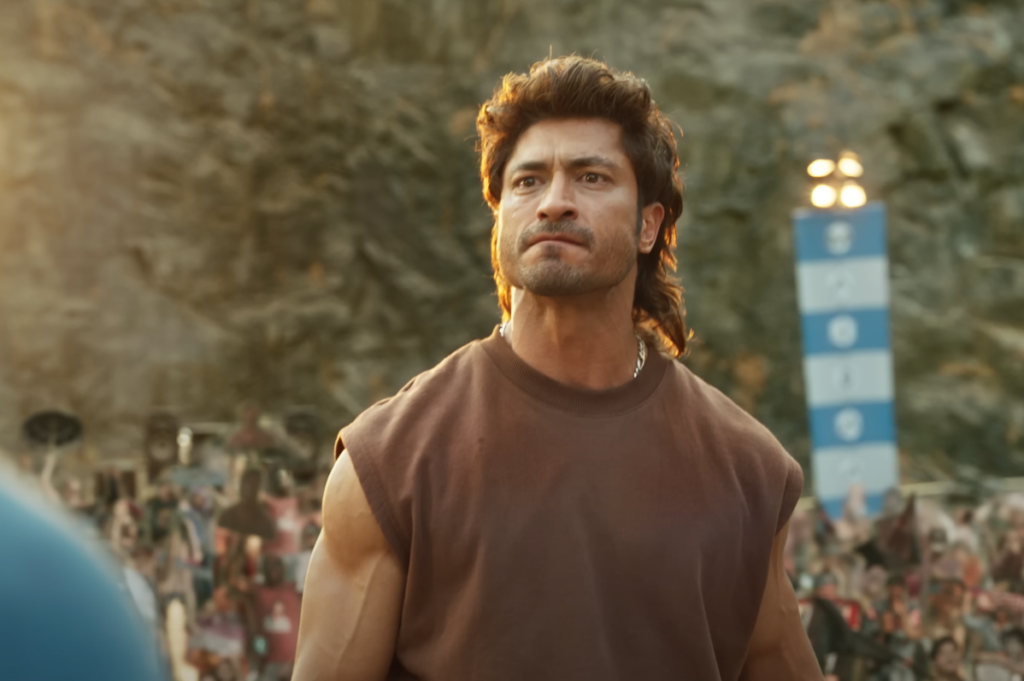Hindi Movie Review: Article 370 is a solid spy thriller undone by relentless political posturing

Following the recent Main Atal Hoon, Aditya Suhas Jambhale’s Article 370 is the latest in an election season wave of Bollywood films that celebrate the accomplishments of the BJP, under the thin guise of a uniting sense of Indian nationalism. Unsurprisingly, Indian critics have largely seen the film through the lens of their own politics; depending on whose assessment you read, it’s either a riveting political thriller or a propaganda piece liberally mixing facts and fiction. Audiences, in line with the BJP’s strong levels of current popularity and the self-selective nature of ticket-buying, have largely embraced the movie, catapulting it to box office success that caught some industry prognosticators by surprise.
As an outside observer stationed in the West, I found the movie’s politics to be entirely unengaging: too obvious and partisan to be thought-provoking, but not over-the-top enough to fuel the kind of rah-rah, saber-rattling entertainment that made Fighter so enjoyable for me. Just as I was getting into the rhythm of the story, there would come another explicit political appeal that took me out of the proceedings and reminded me that “this movie isn’t for you.” Which is not to say that I know enough to have strong feelings about the positions the film stakes out, but rather, that it adopts them with such inelegance that this interferes with the fluidity of its storytelling. A movie like Fighter goes so hard on the propaganda that it becomes part of its aesthetic; Article 370 is still trying to sell itself as a straight-ahead spy thriller, which makes its digressions into virtue-signaling feel like disruptions.
Hindi Movie Review: Crakk: Jeetega… Toh Jiyegaa has the makings of a cult classic, but runs out of gas well before the end

There’s an unhinged, madcap energy to Crakk: Jeetega… Toh Jiyegaa that I couldn’t help but admire, as I love movies that enthusiastically commit to concepts that others would consider embarrassingly outlandish. The film has the same kind of high-adrenaline, logic-out-the-window aesthetic as you might only see stateside in a Joseph Kahn or Neveldine/Taylor production. Which is to say, Crakk belongs firmly in the “I can’t believe they spent this much money and painstaking effort making something this patently absurd” action subgenre. Its title – the word “Crack,” but arbitrarily spelled with two k’s for no particular reason other than to suggest a film that breaks the rules – tells you everything you need to know about its overall aesthetic. If that sounds like a good time to you, it probably will be – at least for an hour or so.
The film’s manic energy, propelled both by the filmmaking and lead Vidyut Jammwal’s entirely straight-faced embodiment of the protagonist (whether he’s completely oblivious to the movie’s absurdity or just committed to the bit, we’ll never truly know), is really the main source of appeal here. The story itself is as bare-bones as action narratives come. Jammwal plays Siddhu Dixit, who calls himself an “extreme sports” junkie but for all practical purposes is really more of a daredevil with a death wish. He makes the Free Solo guy look like a garden-variety mountain climber. We meet Siddhu as he pulls off crazy stunts hanging out the windows of a train, a pastime he’s seemingly had for most of his life. Siddhu makes videos of his illegal tricks in hopes of being recruited for Maidaan, an underground competition for likeminded athletic dumbasses.
Hindi Movie Review: Teri Baaton Mein Aisa Uljha Jiya satirizes the raging A.I. debate with irresistible rom-com hijinks

The “robot woman” subgenre has certainly had a notable impact on culture worldwide, spanning landmark titles from The Stepford Wives to Ex Machina, but there are actually fewer of these movies than you’d think. The list gets even shorter if you winnow it to just those films that are not strictly about the perils of robot technology, i.e., those that attempt something more than just dystopian science-fiction. I point this out simply to say that the time is ripe for a movie like Teri Baaton Mein Aisa Uljha Jiya, which definitely has its fair share of cautionary points to make in the end, but spends much of its runtime thriving as a frothy, off-kilter romantic comedy between a man and a female-appearing robot. Especially with all the media discourse of artificial intelligence’s role in present-day civilization, this subgenre feels like the right well to go back to in our current moment. Leave it to Bollywood to get there first.
But the movie doesn’t just feel like it’s seizing upon the zeitgeist; topicality aside, it chiefly succeeds as pure entertainment. Sometimes it’s aggressively silly, yes, but this is the type of good-natured, mass-appeal amusement that moviegoers used to love before they got overly self-conscious. The setup is simple, but satisfying: protagonist Aryan (Shahid Kapoor) is a brilliant robotics programmer whose personal life lacks the excitement of his coding innovations, marked by a refusal to marry any woman his family presents to him. Fortunes change, however, when Aryan’s U.S.-based boss and aunt, Urmila (Dimple Kapadia), introduces him to her lovely assistant Sifra (Kriti Sanon) on a business trip. He’s immediately struck by her – she’s perfect for him in every way – but the only problem is, Sifra actually stands for “Super Intelligent Female Robot Automation” (brilliant movie scientists just have a way of picking the lamest acronyms ever for their inventions!). Aunt Urmila had to test her technological masterpiece on Aryan without revealing the secret behind “her.”

